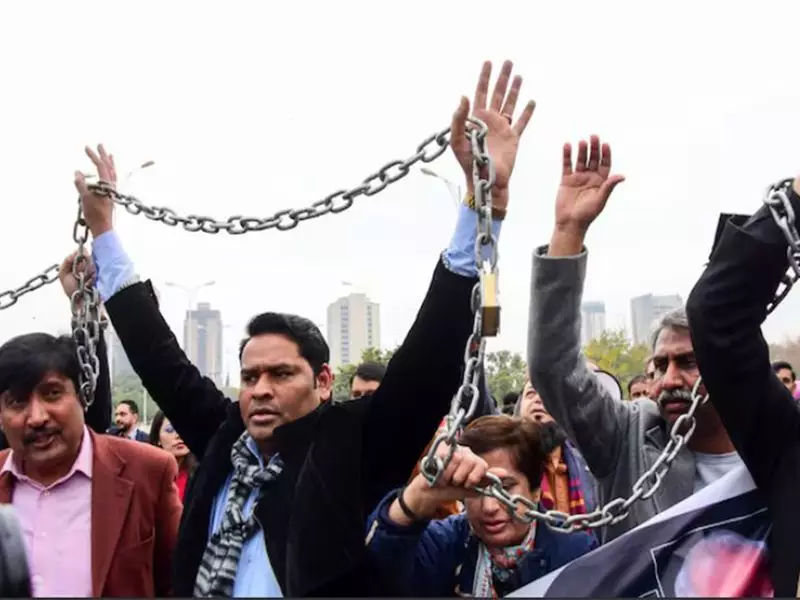
In a significant development that has drawn international attention, Human Rights Watch has launched a forceful appeal to Pakistani authorities, demanding the immediate release of journalist Ihtisham Magray and the complete withdrawal of all charges against him.
The Case That Shook Pakistan's Media Landscape
The controversy centers around Magray's detention under Pakistan's Prevention of Electronic Crimes Act (PECA), legislation that rights organizations have repeatedly criticized as draconian and oppressive. The journalist finds himself entangled in legal proceedings that many international observers describe as blatant persecution rather than legitimate prosecution.
International Outcry Grows Louder
Human Rights Watch has not minced words in its condemnation of the Pakistani government's actions. The prominent global rights organization characterized the case as a "textbook example of how authorities misuse cybercrime laws to silence critical voices and suppress dissent."
The organization's statement highlighted several concerning aspects of Magray's detention:
- Extended pre-trial incarceration without substantial evidence
- Vague and unsubstantiated charges under PECA regulations
- Apparent retaliation for the journalist's professional work
- Systematic pattern of targeting media critics
A Broader Pattern of Media Suppression
This case represents more than just an isolated incident. Media freedom advocates point to a disturbing trend where Pakistani authorities increasingly weaponize cybercrime legislation against journalists, activists, and political opponents. The PECA law, initially presented as a measure to combat online harassment and cyber terrorism, has frequently been deployed to criminalize legitimate journalism and peaceful dissent.
The Human Cost of Legal Persecution
Behind the legal terminology and diplomatic statements lies a human story of immense personal suffering. Magray's prolonged legal battle has taken a severe toll on his personal and professional life, reflecting the broader chilling effect on Pakistan's media industry. Journalists across the country now operate in an environment of heightened fear and self-censorship, uncertain about what might trigger similar legal action against them.
Global Community Watches Closely
The international response to Magray's case has been swift and unequivocal. Press freedom organizations, foreign diplomatic missions, and United Nations human rights experts have all expressed serious concerns about the deteriorating state of media freedom in Pakistan. Many see this case as a critical test of Pakistan's commitment to democratic principles and fundamental human rights.
The world is watching as Pakistani authorities navigate growing international pressure while domestic concerns about shrinking civic space continue to mount. The outcome of Magray's case will likely have far-reaching implications for Pakistan's global standing and its relationship with international human rights bodies.





